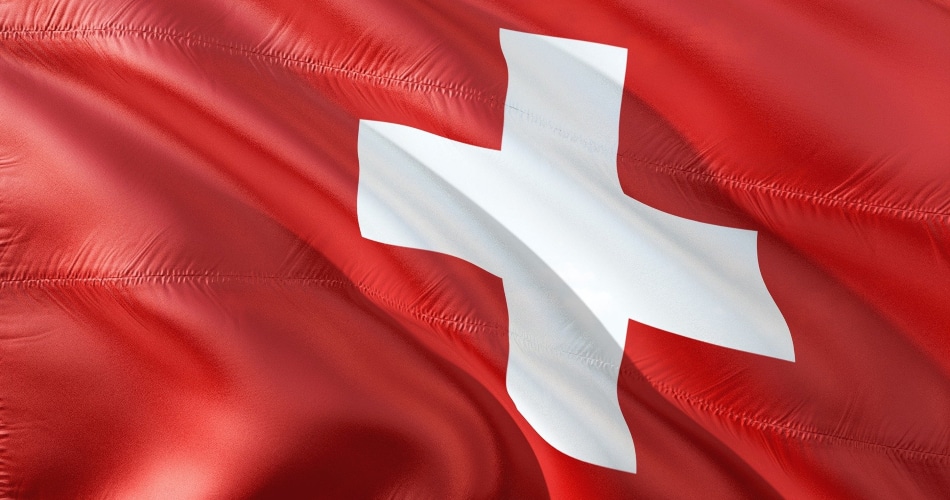
Switzerland’s gambling regulator, the Swiss Lottery and Betting Board or Comlot rebranded to Gespa amidst regulation and licensing changes.
The organisation, which is responsible for the licensing and monitorisation of all gambling activities within the country, rebranded on January 1st, 2021, after changes to regulation saw the Swiss Geldspiel Konkordat (GSK) come into force, replacing the Intercantonal Convention on Licensing and Supervision of Intercantonal and National Lotteries and Bets IVLW.
All of Comlot’s rights and responsibilities have since been transferred to Gespa according to the official Gespa website. The rebranded organisation is responsible for the supervision of gambling across Switzerland, including lotteries and sports betting.
Gespa also has been given the responsibility of fighting illegal gambling by blacklisting unlicensed online casino websites. The organisation has spent the last several months compiling a blacklist of unlicensed operators, many of which have become blocked by local service providers within the country.
The change comes as part of a move to meet new federal gaming laws following the introduction of Switzerland’s Federal Act on Real-Money Gambling in 2019 which prohibited unlicensed gambling activity and allowed brick-and-mortar casinos to receive iGaming licenses.
As reported by iGaming Business, the country’s cantons were given a two-year window until January 2021 to adapt their local gambling laws to meet the federal framework following the introduction of the act.
In addition to Switzerland, many other gambling regulators around the world have kick-started 2021 by announcing plans to make changes or implementing changes over how they monitor and regulate gambling.
For example, the Malta Gaming Authority (MGA), which is responsible for regulating all gambling within Malta, has this week issued its licensees with a reminder of their duties to submit and document any suspicious betting reports from January 1st, 2021.
As reported by SBC News, the Malta Gaming Authority’s reminder reads: “It is now time to formalise the noted directive, so the MGA would like to remind all stakeholders that as of 1 January 2021, Suspicious Betting Reporting Requirements will officially be obligatory for all B2C licensees.”
The reminder comes as part of the MGA’s revamp of Malta’s Gaming Act which was announced back in 2018 and saw the national regulator make changes to its criteria for gambling authorisation to strengthen its compliance directives.
Under the revamp, all licensing gambling operators from 2021 onwards must inform the MGA of any suspicious betting circumstances recorded by their systems or platforms. What’s more, licensees must document and inform the MGA of any instances where bets are voided due to suspicious activity.
Licensees will be required to submit reports directly to the MGA’s Sports Integrity Unit which forms a part of the regulator’s Suspicious Betting Reporting Mechanism. The Integrity Unit will then review submissions and evidence on a case-by-case basis and will share relevant data with criminal authorities and sports bodies.
In addition to the above, France’s gambling regulator the L’Autorite Nationale des Jeux (ANJ), which was formed back in June 2020, has announced this week that it has plans on implementing new tougher measures to improve consumer protection across the country.
As reported by FocusGN, ANJ believes that new measures are required to address rising concerns regarding problem gambling within the country. Data from the ANJ states that the number of problem gamblers within France has increased from 200,000 in 2014 to more than 370,000 in the last year.
The increase in problem gamblers is thought to be linked to the ongoing Coronavirus pandemic and France’s national lockdowns and restrictions over the last year, during which the gambling sector has reported increased revenue.
ANJ has plans to tackle the rising number of problem gamblers as well as the reported increase in underage gamblers by updating its current laws. The gambling regulator also has shared plans to develop better controls to provide consumers with more protection and control.
These plans include requiring operators to provide its players with “the tools and resources necessary” to help them control their gambling. These tools can include limitations on deposits or playtime which the ANJ believes players should be able to freely set themselves.
The regulator also wants to require gambling operators to limit the risk potential of addiction within customers when designing their game offerings, and it wants operators to “assess the addiction potential of the gambling offer and its attractiveness to minors, before and after providing it.”
Finally, the ANJ is looking to require operators to clearly state at venues or on websites that minors are prohibited from gambling.
All gambling operators will be required to submit a safer gambling action plan to the ANJ, and the regulator will approve the plan or add recommendations if it finds the plan unsatisfactory. The plan, as requested by the ANJ, should include a review of the action taken in the last year to prevent underage and excessive gambling as well as the operators’ plans for the next year.
France’s gambling monopolies La Francaise des Jeux (FDJ) which focuses on lotteries and Pari-Mutuel Urbain (PMU) which operates horse races are required to submit their action plans by September 30, 2021.
Online gambling operators, meanwhile, are required to submit their action plans by November 30, 2021, while racing operators and brick-and-mortar casino operators have until December 31, 2021. Alongside this, all operators will be required to submit a second action plan covering their promotional strategies by October 31, 2021.
The ANJ has confirmed that it’s been working on these regulation changes and controls with several other organisations including the National Union of Family Associations (UNAF) and the Ministry of Solidarity and Health (MSH).